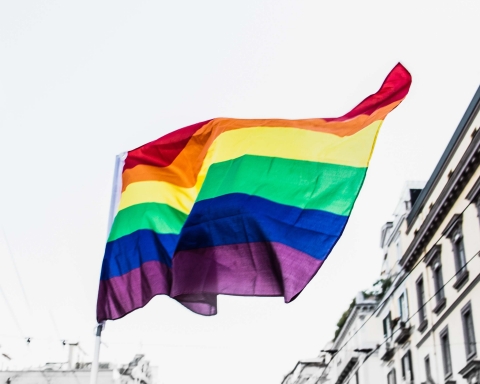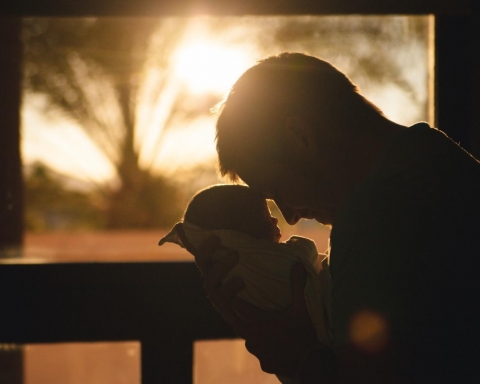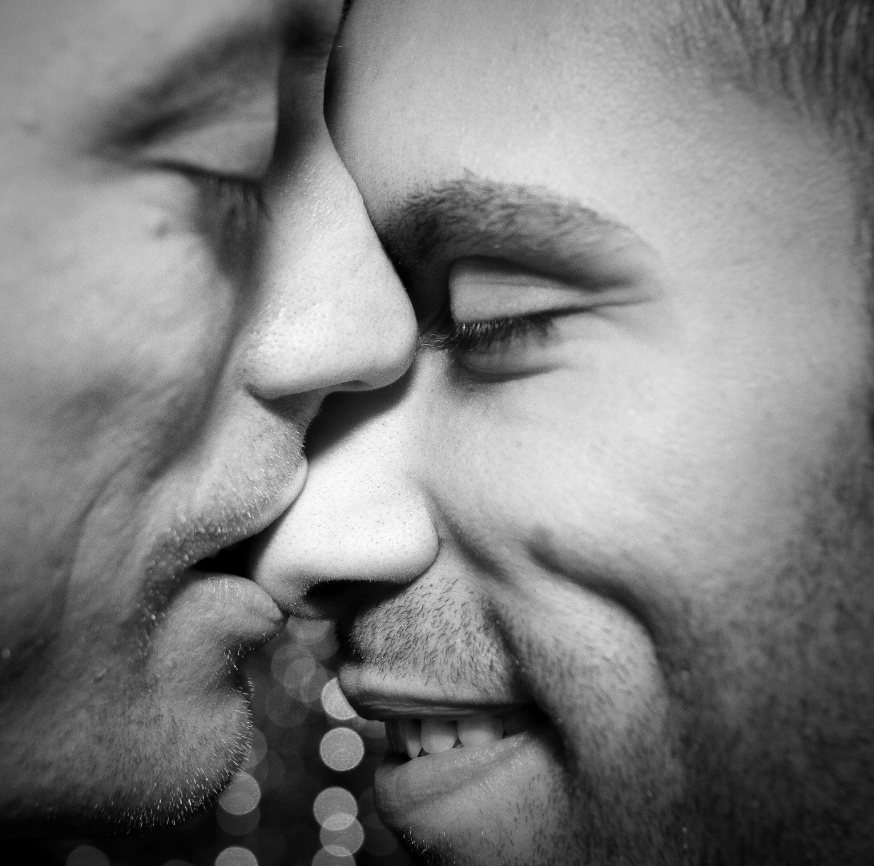On June 12, 2016, gunman Omar Mateen opened fire on Pulse, an LGBTQ nightclub in Orlando, Florida, killing 50 people, including himself, and wounding nearly 60 others. After Mateen spoke with a 911 operator, it quickly became clear that the shooting, which was “the second-deadliest mass shooting by a single shooter in United States history”, was a terrorist attack. In the 911 recordings Mateen can be heard saying, “I pledge allegiance to Abu Bakr al Baghdadi of the Islamic State. (…) You need to know that they need to stop bombing Syria and Iraq. The U.S. is collaborating with Russia, and they’re killing innocent women and children, OK?”
The heinous act tore right into the heart of Orlando’s Latinx queer community, leading law enforcement to “not only categorized it as a terror attack but also as a hate crime.” The pain, trauma and loss was visceral. “The deadliest terrorist attack in the United States since the September 11 attacks in 2001,” was also “the deadliest incident of violence against lesbian, gay, bisexual, and transgender (LGBT) people in the history of the United States.” For queer people the world over it seemed as though our worst fears of blatant persecution were becoming a horrifying reality. Queer news sites, celebrities and survivors came together to mourn and to give each other strength.
No one thought to question Mateen’s motives, because the idea that a radical Muslim would target an LGBTQ nightclub because of his hatred of gay people made sense. “We’re constantly told that Muslims hate gay people,” explains journalist Glenn Greenwald, “Especially ones who are radicalized by ISIS.” The plot became even more twisted when claims emerged that Mateen had been a regular at Pulse, and that the massacre may have been “out of revenge against Latino men when Mateen learned he may have been exposed to HIV from a Puerto Rican man with whom he had sex.” The new claims conjured up images of a gay man tormented by his own religious beliefs to the point of insanity. While slightly more nuanced, the narrative still seemed to make sense.
However, since June 12, 2016, an abundance of evidence has mounted to disprove both the belief that the shooting was a hate crime targeting the LGBTQ community, and that Omar Mateen had been leading a secret gay life:
Firstly, there was absolutely no anti-gay sentiment in any of the Facebook postings Mateen published shortly before the killings, nor in the statments he made to 911 and law enforcement officials, nor in any of the exchanges he had with victims and survivors. His primary greivance throughout is one that is “commonly cited by Muslims who attack Americans”: “the ongoing killing of Muslim civilians by the U.S.”
Secondly, investigations have revealed that Mateen’s initial targets had been Disney parks and shopping malls, but when he found these venues to be too well protected, he Googled the term “downton orlando nightclubs”. He then scoped out EVE Orlando, a nightclub that doesn’t specifically cater to LGBTQ clientele, before rerunning the search for “downtown orlando nightclubs” and heading for Pulse. “Mateen never lived in Orlando; at the time of the attack, he lived in Fort Pierce, more than 100 miles from Orlando, a two-hour drive. There is no evidence he even knew that Pulse was a gay club.”
Thirdly, mere weeks after the shooting, The Los Angeles Times reported that FBI officials had “found no photographs, no text messages, no smartphone apps, no gay pornography and no cell-tower location data to suggest that Mateen — who was twice married to women and had a young son — conducted a secret gay life.”
Despite all this information, few have shown any particular interest in revising our understanding of the horrific events of June 12, 2016. Greenwald explains in a piece for The Intercept that, “as so often happens in the wake of mass shootings and terror attacks, media narratives emerge early on, when little is known, and never become dislodged from the public’s mind, even as the formal investigation reveals that there is little evidence to support those initial, still-common media claims — or, as is the case here, overwhelming evidence that strongly negates those beliefs.”
But why does any of this matter? “It should go without saying that none of these questions about Mateen’s motive remotely mitigates the evil of the attack. But it is crucial to understand the truth of what happened,” says Greenwald. And there is a very good reason why: As Greenwald illustrates, with the help of Jeremy Scahill, in Episode 51 of the Intercepted podcast, the more people believe Omar Mateen’s real motivation was a hatred of the LGBTQ community, the better it is for politicians with anti-Muslim animus.
Outspoken anti-gay political figures such as Donald Trump and Mike Pence were quick to condemn “the shooting as an attack on gay Americans,” likening it to “ISIS throwing gay people off of buildings.” LGBTQ solidarity is more than a little suspcious coming from someone like Pence who has a history of actively attacking LGBTQ rights. Notice how in this statement about the Pulse attack, he side-steps the issue of his position on LGBTQ well-being and opts rather to emphasize the terrorist nature of the attack:
Vice President Mike Pence: We have been praying for the victims and those that are recovering from injuries, family members, friends and loved ones, especially those in the LGBT community who have been victimized by this horrendous attack.
Reporter: Does this change your opinion on adding protections for LGBT Hoosiers?
MP: I’m just deeply saddened at the loss of life. An attack on any American is an attack on every American. This was a terrorist attack.
Aside from making a PR move, there is another motive behind anti-gay politicians rallying behind the LGBTQ community after the Pulse shooting. “There is this really insidious effort on the part of people in the West to campaign against Muslims and try to spread anti-Muslim animus, to argue that being Muslim is incompatible with being a Westerner,” explains Greenwald, and the “Pulse attack and the false narrative that arose from it was the perfect weapon to promote that narrative.”
One only needs to look back on how Donald Trump used the tragedy in his political manoeuvers to see that Greenwald’s statement rings true.
“Hillary Clinton can never claim to be a friend of the gay community as long as she continues to support immigration policies that bring Islamic extremists to our country and who suppress women, gays, and anyone else who doesn’t share their views or values.” – Donald J. Trump
The message that was being conveyed was, “Look, all of you liberals who have been resistant to the idea that Muslims and Islam in the West are a threat to your values, here’s the perfect proof.” As a gay man himself, Greenwald admits to having had a visceral reaction to Mateen’s decision to attack “one of the most sacred places for American liberalism, which is the meeting place, a safe space for LGBTs,” but goes on to say that that visceral reaction shared by many was “exploited on purpose” in order to rally liberals around the anti-Muslim cause.
“And that’s why I thought it was so important to debunk what had been this very damaging falsehood, because it just isn’t true that that’s why he chose to do the attack. What really motivated him was the same thing that motivates most people who engage in violence against the West in the name of jihad or radical Islam or allegiance to ISIS, which is anger over 17 years of American killing of innocent Muslim women and children and men in the Muslim world.”
The real motivation behind Omar Mateen’s devastating attack on June 12, 2016 is an uncomfortable truth, and it’s one that the U.S government and the U.S media don’t want you to think about. “Starting immediately after 9/11, the number one propagandistic goal of the U.S. government and then the U.S. media was to conceal the actual grievances expressed in the Muslim world that led to 9/11,” explains Greenwald. After 9/11 and then again after the Pulse shooting, the question, “But why do terrorists hate us?” was on everyone’s lips. “The real reasons for it were things that people like David Frum, and Dick Cheney, and Bill Kristol, and Donald Rumsfeld were petrified for people to know, which is: We’re interfering in the Muslim world, we have bases all over the land that they consider sacred, we starved hundreds of thousands of people with sanctions in Iraq, we have supported Israeli aggression against numerous Arab countries, including the Palestinians. These were all the grievances articulated by al Qaeda, and those weren’t allowed to be aired. So they had to invent a fictitious narrative which became: They hate us for our freedoms. They don’t want women to be able to walk around unveiled. They hate gays. They hate freedom of speech, freedom of religion. That became the fiction that was designed to suppress the actual truth of what (…) their grievance was against the United States.”
The real motivation behind Omar Mateen’s attack is indeed an uncomfortable truth, but one that deserves to be inspected unflinchingly. “If we did stop and think about it,” concludes Greenwald, “We would realize that the policies we’re supporting in the name of stopping terrorism, constantly bombing the Muslim world, locking up people up without due process, all of that, are actually the things that are fueling terrorism more than anything else.”
Listen to the full podcast here.
By Jo Jackson
Photo: Brianna Santellan









